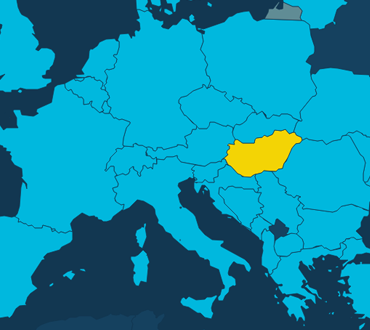 Hungary
Hungary

ENTRY INTO FORCE of the European Convention on Human Rights
5 November 1992
Number of implemented cases*
667
Examples
End to automatic voting ban for people placed under guardianship
At first, Alajos Kiss did not realise that the situation he was in because of his mental health difficulties meant he had lost the right to vote. The European Court of Human Rights later ruled that Hungary’s blanket voting ban for people placed under partial guardianship was unfair. The Hungarian government responded to the judgment by ending the automatic ban.
Maternity benefits for all mothers, regardless of nationality
A young family was unable to get maternity benefits because the mother was not Hungarian, even though her husband and twin boys had been born in Hungary. The European Court of Human Rights ruled that this was discrimination. Hungary then changed the law to cover every mother legally residing in the country, regardless of their nationality.
Woman wins right to legally give birth at home
Anna Ternovszky did not want to give birth in a hospital, but any health professional who helped with a home birth risked prosecution. The European court ruled that this legal uncertainty breached Anna’s rights. Hungary responded to the judgment by passing a new law allowing soon-to-be mothers to give birth at home.
Justice for elderly widow forced to change her name by the government
Tiborné Daróczy was 71 years old when the government made her change her name - even though she she had used it for fifty years. Tiborné saw her name as a strong link to her late husband. She did not want to be forced to change it. The European court ruled in her favour and the Hungarian authorities then allowed Tiborné to keep her old name.
Failure to investigate allegations of police ill-treatment
Market trader Ágoston Kmetty was allegedly beaten for 3 hours by police officers. However, no charges were brought against any of them. The European court held that the prosecutor had never properly investigated – refusing even to question the officers allegedly involved. Subsequent changes improved the remedies available to victims to ensure that crimes are properly investigated.
* This figure includes all judgments and decisions from the European Court of Human Rights (including friendly settlements) concerning which the Council of Europe’s Committee of Ministers has decided that all necessary follow-up measures have been taken. Source: the database of the Department for the Execution of Judgments of the ECHR, HUDOC-EXEC.


